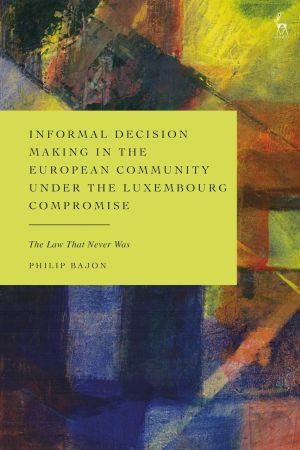
This book analyses the informal decision making process in the EU against the background of a gradually emerging European legal order.
Based on extensive multi-archival research in the UK, France, Germany, the Benelux countries and in Community institutions, the book explores the resistance against majority rule under the so-called Luxembourg Compromise of 1966, a European 'soft law' that allowed Member States to invoke 'vital national interests' and to veto legislation. This 'gentlemen's agreement' was never sanctioned or codified. However, as a 'rule of the game' it had a significant impact on the operations of the EU for several decades and became an integral part of the EU's 'consensus' approach. Its underlying rationale is still alive in the present-day EU.
Presenting a deeply revisionist account of European law and politics, the book demonstrates how the Luxembourg arrangement served as a compromise between the Treaty text and political reality, as a counterweight to technocratic ideas, and as a bridge between irreconcilable divides over European unification.
It includes case studies from 1965 - 2000, such as the 'Eurosclerosis' of the 1970s, British exceptionalism as an EU member, the European revival of the mid-1980s, and intergovernmentalism on the verge of negotiating the Maastricht Treaty.
Highly original in its interdisciplinary, comprehensive and archivally-rooted method, the book interrogates the most important and controversial debates about the past, present and future of the European Union.